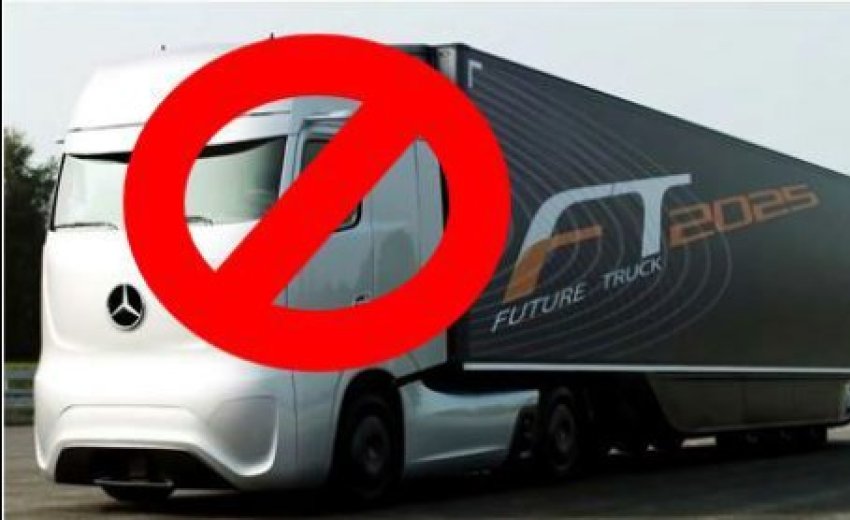Driverless Trucking And The Punjabi Sikhs
Tajinder Singh writes to SikhNet ~
After reading a short commentary on your website referring to truck drivers in the Sikh community as heros, I was inspired to write the attached. My objective is simply to produce dialogue and awareness of the technological advancements in the transport industry and their potential impact to the Sikh community. This is a two part piece, second part is still in the works.
Just recently I had read an article on Sikhnet.com titled “Sikh Truck Drivers - the Local Heros.” While I won’t go into details, the article brings up an interesting angle to the desi-based trucking world, specifically focusing on the Punjabi Sikh community. The trucking occupation is taken more for granted rather than recognized as an industry where the community makes a major impact to North America's Punjabi Sikh diaspora. The trucking occupation directly impacts the socio-economics of the community, and has a major investment in the survival of its cultural and religious practices through sponsorship of communities religious-cultural events and institutions. This brings me to a discussion on a topic, which I hope may simply initiate a dialogue within the “desi trucking world”, pertaining to trucking automation and its communal economic effects.
Consumer driverless trucking is a newly introduced, work in progress concept that is seen as creating a
future for driverless trucking. Though this is not a new concept, it falls into the development of automation in
the workplace, cutting cost by cutting headcount, a strategy that has just recently been employed as
technology advances. Robotics is a growing industry heavily emphasized in the modern American education
system as well as other state-based
systems such as the military. The military sees advancements in
technologies such as exoskeletons, air combat drones, cargo delivery systems, all the way to four legged
robotic gunners. More familiar to the everyday person, largescale
corporations such as Google, Mercedes
and many others are continuously at work on driverless vehicles. Combine this technology with the new and
future advancements in artificial intelligence and cloud computing, and we have the makings of a fully
functional system without the need of human operators. Working in the technology industry myself, I see this
phenomenon of full automation coming into reality in a very short time - perhaps
within mine and your
lifetimes. Relating to the topic at hand, I also predict that in the next 10 years, the trucking industry will start
to see impact of full automation in the form of driverless trucks.
How will this come about and who will be impacted? One can only speculate. But switching to a full,
driverless system for any smaller private company (even for well established
corporations such as Pepsi or
Amazon who have their own means of transportation) to some extent will not be as easy as an overnight
switch simply due to high costs. What will be doable, however, is the development of companies, who are
willing to solely invest in automated trucking (think of the Zipcar concept). Imagine a fleet of trucks going
from point A to point B where the complete cost of the truck maintenance is purely the responsibility of the
3rd party, which has no driver, can run twenty four hours seven days a week, is subject to minimal to no
state or federal driver regulations, occurs a lower insurance cost, and virtually has all human obstacles
eliminated, obstacles which normally face companies with drivers. Combine this with the actual idea of full
automation, where instructions are sent directly to trucks from servers running algorithms and holding
information from centralized brokerage databases. This setup alone will eliminate dispatching companies,
private operators, small sized family run trucking companies whose owners are oftentimes drivers
themselves...you get the picture?
What does this mean for the Punjabi Sikh community? Having been active one way or another for over 18 years, I can say one thing with confidence: there are two sub groups within this community, on which religious institutions and culture preservation of “Punjabiat” has survived in the West - these are trucking and farming. Trucking being the focus of this commentary we can delve into the issues surrounding farming another day. There is no other subgroup coming from the fields of engineering, medical, law or other types of businesses who I can say benefit the community to the extent that these two groups do financially. Any nagar kirtan, any cultural show, any music concert, any protest, any awareness campaign...no other group makes more contributions and encourages participation than the trucking arena. There is a reason for this, other fields have adapted to the western capitalist way of thinking where 401K takes precedence over donations where donations are reduced to what is acceptable in tax deduction etc., rather the open-hearted outburst of “Punjabiat”, which seems to be alive and well preserved in the trucking world. I will leave you the reader with this thought: just for one minute imagine in a ten year period, trucking was to go to automated to the point there was a major deployment impact in the industry. What will become of the religious institutions, cultural based programs, and nationalist movements so heavily dependent on the current industry’s support?
T.S. Nagra
_________________________________________
Techtimes.com http://www.techtimes.com/articles/3118/20140203/lockheedmartinsuccessfullytestsselfdrivingmilitarytrucks.
htm
Business Insider http://www.businessinsider.com/themilitaryisgettingintoselfdrivingvehicl...
MIT Technology Review http://www.technologyreview.com/news/533686/2014incomputingbreakthroughsinartificialintelligence/
SikhNet https://www.sikhnet.com/news/sikh-truck-drivers-local-heroes
